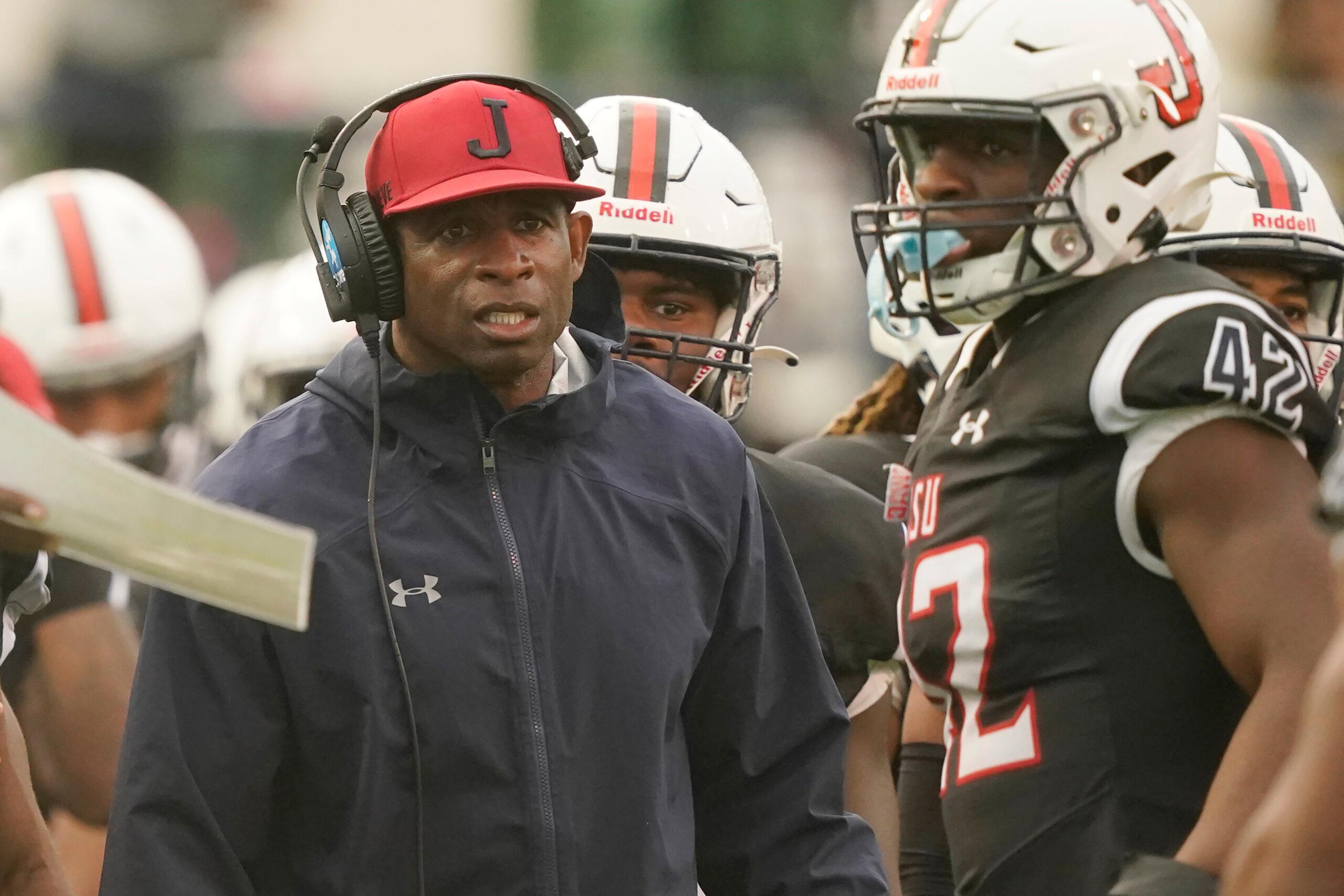
The University of Colorado Board of Regents voted Thursday to officially begin the era of Prime Time — or Coach Prime — at Folsom Field.
Although Deion Sanders, the former NFL star, was unveiled as the Buffs’ new head coach earlier this month, CU Regents still had to vote to approve the contract. The bipartisan, elected board — which makes institutional decisions for the system that oversees all four CU campuses — voted Thursday 8-1 to formally approve Sanders’ five-year contract. Sanders will make $500,000 per year as his base pay, with $4,000,000 in supplemental pay per year as well as opportunities for incentive-based pay and merit-based raises.
District 1’s outgoing regent, Jack Kroll, was the lone dissenting vote. He cited an unsustainable financial model as a key reason he voted against the contract.
“While I commend the choice of our third Black head coach in a row and fourth overall, the system still thrives on the back of unpaid labor, and I believe it’s only a matter of time before athletes gain recognition as employees, which will further challenge the sustainability of the financial model,” Kroll said during the vote, his final act as a standing regent.
Regent Glen Gallegos, while voting to approve the contract, expressed fatigue at CU’s pattern of hiring and firing football coaches at the drop of a button.
“This is my fifth football coach, [and] an athletic director left without pay. Somewhere along the line, we have to stop this pattern we’re in,” Gallegos told other regents. “Somewhere along the line, we have to stop this. We have to start making people accountable for the choices that we’ve made.”
Kroll later told CPR News it wasn’t a vote against a person, but instead one against an inequitable system.
“In a time like this, when students are struggling to afford a college education, we have a lot of turnover with our employees because we're not able to keep competitive salaries, some of the challenges we have with capital construction down on the Denver campus,” Kroll said. “I just think there's better ways to use the taxpayers’ money than to support a financial model in big time college athletics that rewards people at the top and leaves everyone else — students, staff, faculty, taxpayers — holding the bag,” Kroll said.
The university’s athletics department operated at a loss of $17 million in 2021. When Sanders was announced as coach earlier this month, Athletics Director Rick George said he didn’t know where the extra money to hire Sanders would come from. But, George said he was confident administrators would find a way to make it work.
Roger Pielke Jr., a professor at CU who founded the now-defunct Sports Governance Center, said the university’s athletics department has promised to wean itself off financial support from the academic side of the university. It’s a promise Pielke thinks will be difficult to keep.
“It's clear that CU athletics does not make money. So, CU athletics does not have a sovereign wealth fund that it deposits the money in,” Pielke Jr. said. “It doesn't transfer money to the main campus.”
The Buffs have paid costly buyouts to the two coaches they have fired since 2018. A third, Mel Tucker, left to take another head coaching job at Michigan State. If Sanders is fired without cause, he’ll be entitled to up to 75 percent of his remaining base salary. If Sanders leaves the university within a year for another coaching job, he’ll owe CU $15 million.









